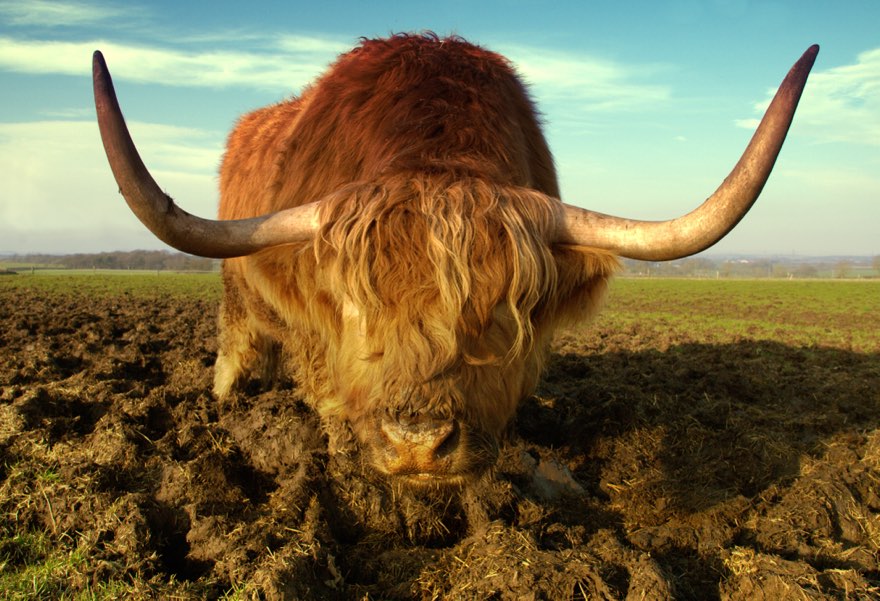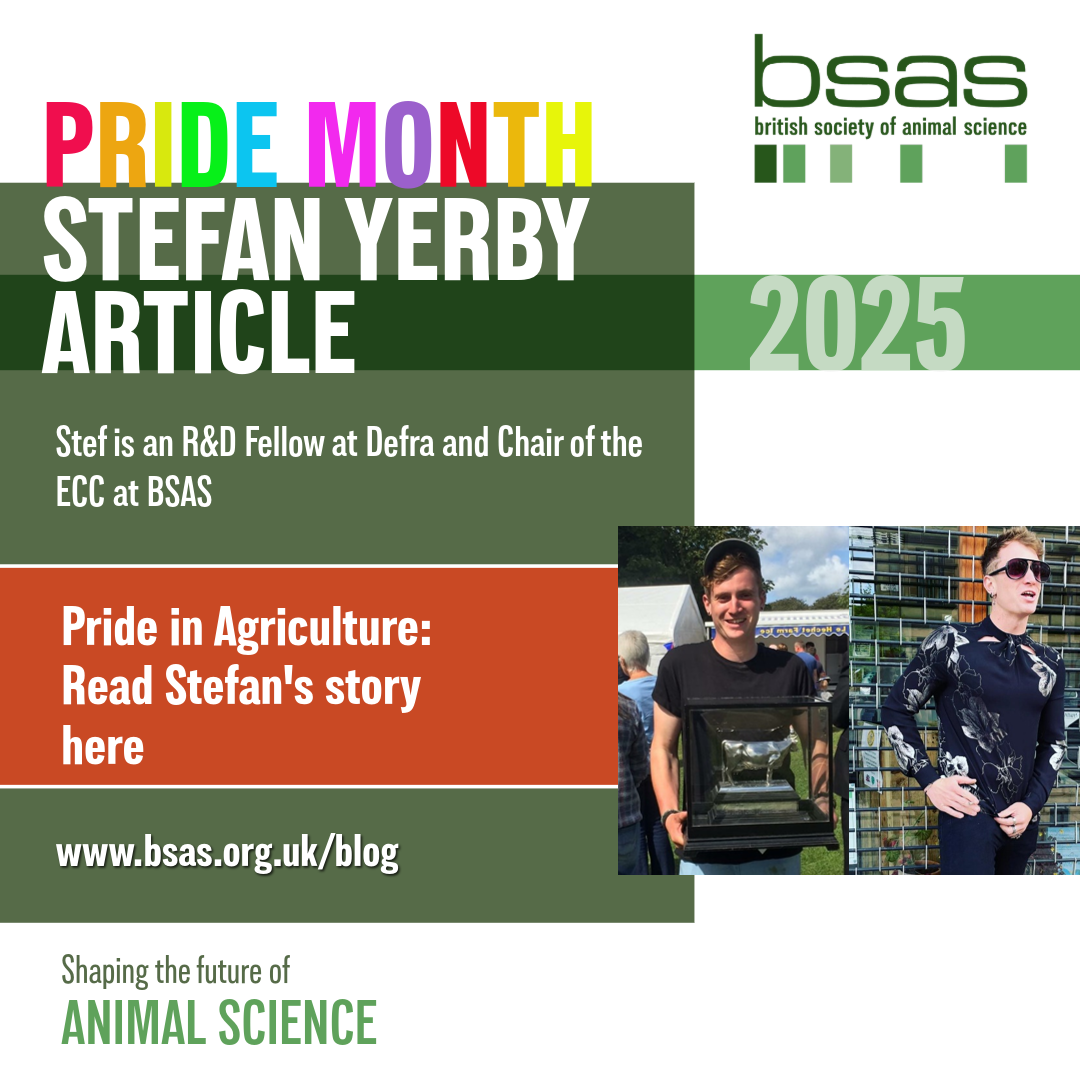Pride in Agriculture

- BSAS Equine Conference 2025: Bridging Science and Practice in Horse Care and Management
- PhD Researcher Stefan Yerby appointed as Trustee of the British Society of Animal Science
- Burleigh Dodds Science Publishing - 20% discount for BSAS Members
- Dr Grace O’Gorman Appointed as a new Trustee of the Society.
- View All
Pride in Agriculture
Author: Stefan Yerby (he/him) 
Bio: Stef is an R&D fellow working in the Farming Science Team. Coming from Guernsey in the Channel Islands, Stef spent a decade farming sheep, beef and dairy before moving into research.
I don’t come from a farming family, but I’ve always loved animals. At thirteen, I started my own enterprise collecting as many livestock as I could. By sixteen, I had accumulated over 200 sheep, cattle, pigs and goats. I had plenty of time, as I’d mastered the art of bunking off school and not getting caught! School – like church, the other main pillar of my home life – was not particularly tolerant of LGBTQ+ people, and consequently much of my childhood was tumultuous. Farming became my escape – I was quite good at it, and it felt safe. But as I got more involved in the sector, I quickly realised how very different I was from almost everyone else working around me. So, like many queer teenagers, I presented two versions of myself. The first, a bull wrangling, tractor driving, straw-chewing farmer; the second, who usually only appeared after dark and in the company of a few close friends, was far less masculine, enjoyed donning big jewellery, eyeliner and sparkling jumpsuits. Neither of these personas really embodied who I was, but compartmentalisation is a survival tactic employed by many queer youth struggling with identity and acceptance. But, as I'm sure some of you reading this will know, pretending to be something that you are not is exhausting, and unsustainable… I quit farming when I was in my early twenties and now whenever I'm introducing myself, I usually use the one liner: "I moved from farming into research to have a rest". It is true that farming is incredibly hard work, but it wasn't just the long hours that tired me out - I was exhausted of trying to fit into a hyper-masculine industry where I felt like I didn't belong.
When I was pushed out of the closet a few years before I stopped actively farming, some of my peers made it quite clear that they believed homosexuality and farming was an unwelcome juxtaposition (more colourful language was frequently used). So, I set about trying to prove them wrong, rearing cows that won best in class at the shows, and being meticulous in the parlour to make sure the herd was always on the top of the dairy leader board for having the cleanest milk. Yet this made little difference to the opinion of those that believe that sexuality and identity impact someone's ability to do a job. (The truth is, some of the best stockmen I've met later in my career are queer, so maybe it does…)
Since leaving Guernsey eight years ago I've had the privilege of travelling, working, and studying in several countries across Europe and North America, and I've realised that LGBTQ+ folk are everywhere. It's easy for people to assume that we don't exist in farming communities because, often, we don't have great visibility - but that doesn't mean we're absent. Queer invisibility in farming probably stems from the fact that discrimination can be particularly pronounced in primary industry and the fear of being rejected from a small, tight-knit community can cause us to hide pieces of ourselves away.
I'm not going to propose a solution to this problem because I don't have one, but I do think those of us working in agriculture-adjacent fields can play a part. In my experience, people in academia and the civil service are generally fantastic at celebrating diversity. So, let's keep showing up for ourselves, our LGBTQ+ colleagues with boots on the ground, and especially, let's show up for those who would prefer it if we kept our diversity behind closed doors. Happy Pride month!
Stefan is completing a PhD at the University of Glasgow, works for Defra and is Chair of the BSAS Early Career Committee. We wish Stef continued success in his career and thank him for sharing his story.
